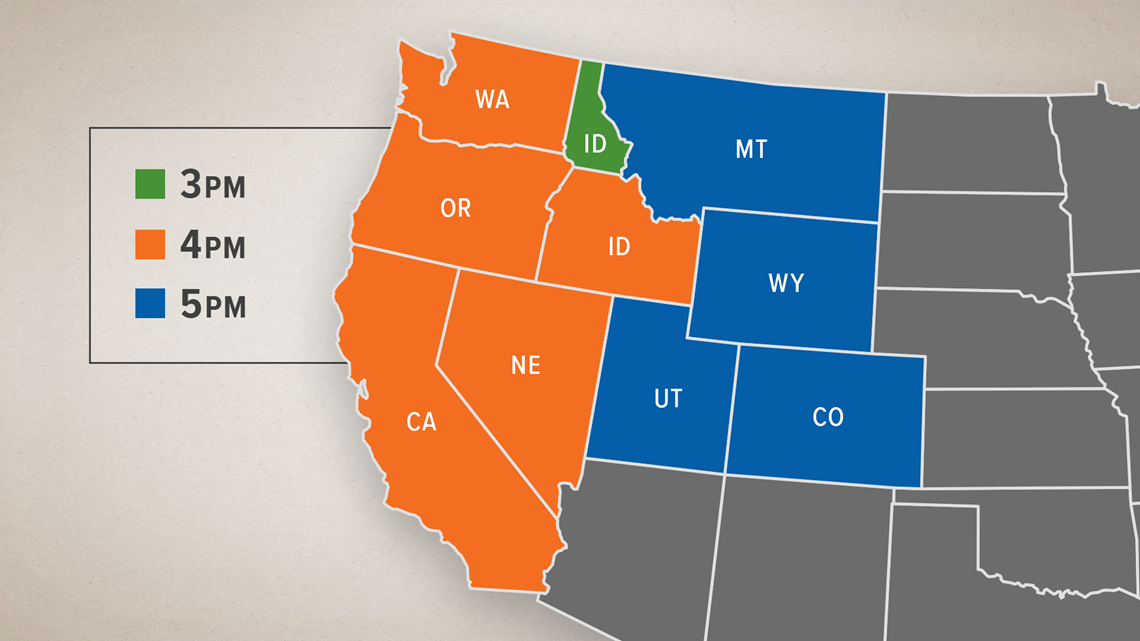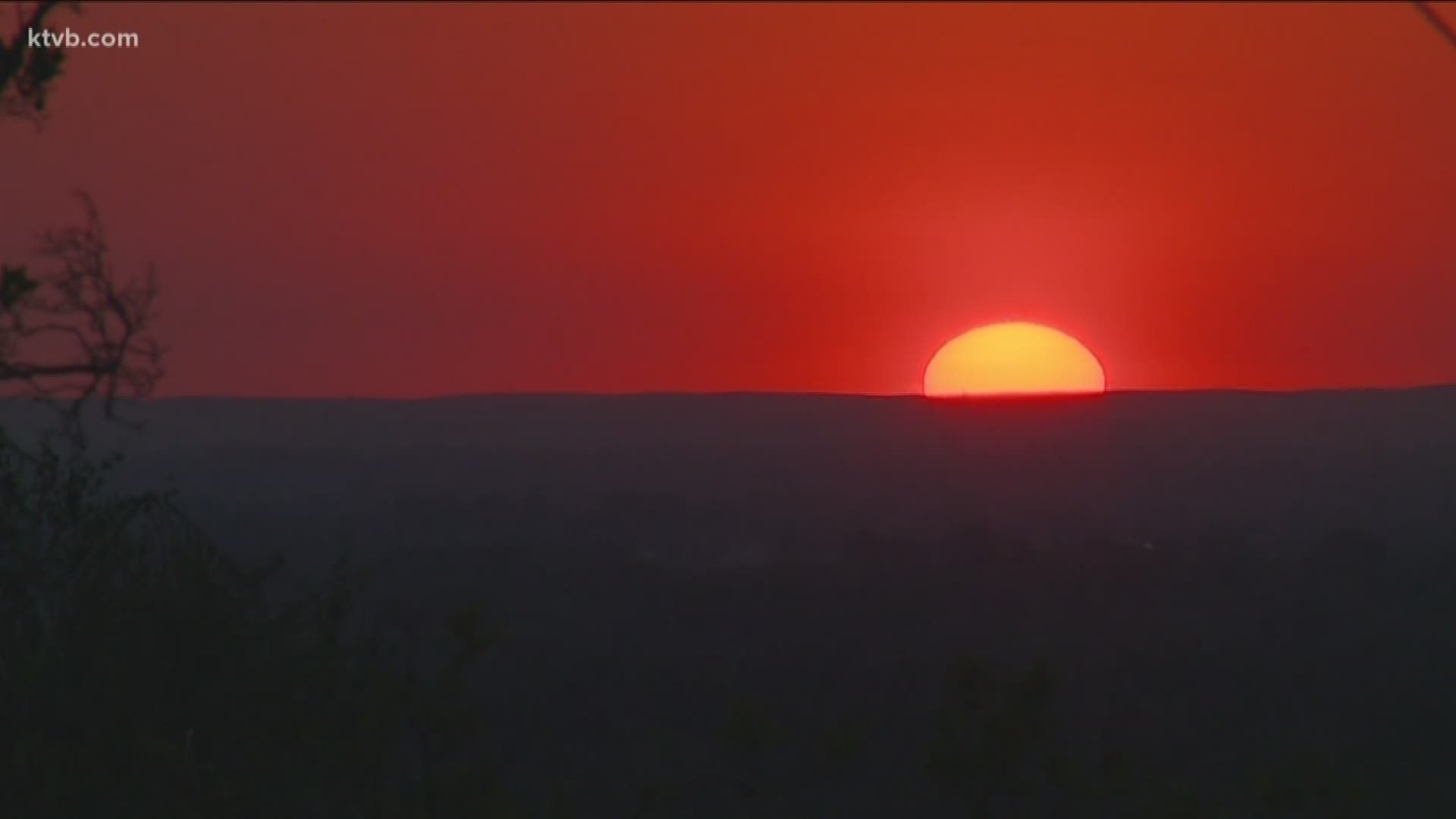BOISE, Idaho — UPDATE: The House voted Feb. 22 against the bill to eliminate daylight saving time in Idaho.
A bill to end daylight saving time soon heads to the House floor. If passed as law, the bill means Idaho would no longer observe the time changes in the spring and fall.
Rep. Christy Zito (R-Hammett), is sponsoring the bill. She said she’s gotten several calls from the people in her district she represents who want to see daylight saving time go away.
Zito said if House Bill 85 were to pass, that means Idaho would be on Mountain Standard Time year-round, except for North Idaho, which would remain on Pacific Standard Time year-round.
That means it would get lighter earlier in the morning, with sunrise around 3:30 a.m. or 4 a.m. That also means it would get darker sooner in the evening, with sunset approximately around 9 p.m.
Zito said there are some concerns with keeping daylight saving time, which is why she’s sponsoring the bill.
“The day after we make the switch to daylight saving time, heart attacks and strokes will go up,” she said. “Students’ grades will suffer some because they’re distracted and they’re tired and they’re groggy because we’re interfering with our natural sleep rhythms when we do that.”
Rep. Mat Erpelding (D-Boise), feels differently. He said many of his constituents have concerns of their own, including the potential harmful effect eliminating the biannual time change could have on outdoor recreation.
Erpelding owns his own outdoor business, Idaho Mountain Guides. So he said he can relate to those concerns first-hand.
“For me, that hour in the evening is an hour I can be using with a client outside and our outdoor recreation industry is heavily dependent on having evenings after work to take people out, guide them, introduce them to the outdoors, and it’s a big piece of our revenue streams," he said.
Zito believes outdoor recreation will be unaffected by the change.
“We don’t change how many hours of daylight there are, we don’t change how many hours you have to enjoy it, we’re just adjusting the clock,” she said.
Daylight saving time was originally started as a way to conserve energy during World War I and therefore, save costs. But Zito says that is no longer really a viable effect.
She cited studies conducted by other states, looking at whether keeping daylight saving time actually saves the state money. According to Zito, the studies found no financial benefit to keeping the time changes.
Erpelding said financial benefit isn’t really a consideration anymore because half the year when summers are longer and there’s more light, you might save money. But then, he said, in the winter when it’s lighter earlier, you might end up using more light and not save anything.
“It’s really just kind of a moot point at this point,” he said.
Another big concern is the time relationship with neighboring states.
“Right now, if Idaho switches and no other states do, we create all kinds of time conflicts,” he said.
For example, under standard time during the winter months, nearby states like Washington and Oregon would be at 4 p.m. along with North Idaho, which is Pacific Standard Time. Southern Idaho would be an hour ahead at 5 p.m., along with other Mountain Standard Time states, like Montana, Wyoming and Utah – who would also be at 5 p.m. Central Time Zone states would be at 6 p.m.
When daylight saving time hits in the summer, those times change. Southern Idaho would be at 4 p.m. and North Idaho would stay at 3 p.m. But because neighboring states would still observe the biannual time changes, states like Utah, Montana, Wyoming would be at 5 p.m. Washington and Oregon, also observing daylight saving time, would be at 4 p.m.


An additional complication: a portion of eastern Oregon is in Mountain Standard Time, adding more time zone differences in the region.
So are there other possible solutions?
Erpelding said if Idaho really wants to do away with a time change altogether and go to one set time zone, the best solution would be to work with neighboring states.
“The best way for us is to actually create a compact with the other western states and come up with a decision that we can all live with, then we’re all on the same page and we figured it out,” he explained.
Zito said there is the possibility of eliminating daylight saving time but staying on daylight time year-round rather than standard time, but that’s more complicated of a process.
“As a state, because of the Energy Act of 2005, we can opt to stay on Mountain Standard Time and Pacific Time in our state,” she said. “If we want to stay on daylight saving time, we have to go get federal approval.”
To eliminate daylight saving and go to Mountain Standard Time, as the bill proposes, only needs state approval.
The bill still has to make it through both the House and Senate and make it to a hearing before it could pass. The Senate State Affairs Committee approved it with a "do pass" recommendation, sending the bill to the House floor for a vote.
“We’re still a long way from this even making it out of the Idaho Legislature at this point,” Erpelding said.

